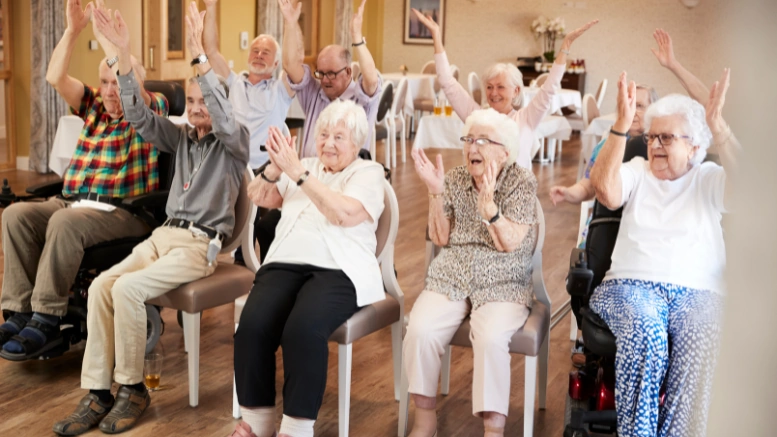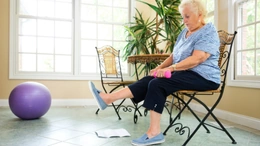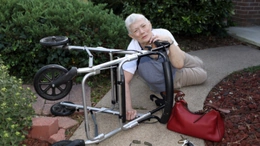Is A Nursery Home The Right Choice For Your Loved One?

Deciding what will be the best way to take care of an aging parent or loved one is one of life's difficult crossroads.
You may already have your own family, work, and other tasks that you have to tend to, watching another person you love gradually lose his or her independence. It is emotionally draining, and there can be no blanket solution.
However, when safety, medical requirements, or daily activities begin to become more of a challenge, the question that you may have in mind is: Should my loved one be in a nursing home?
Well, we’ll help you break it all down to make a confident, informed decision, with heart and facts.
Understanding What A Nursery Or Care Home Is
To begin with, what is a nursery home? It’s like a skilled nursing facility that provides care 24 hours a day to seniors who require assistance with their daily activities, medical supervision, or rehab.
These are not these dull, sterile establishments of the past. Nowadays, they have comfortable rooms, group sessions, and on-site therapists or nurses who are willing to assist at any time of the day.
A nursing home offers more care than an assisted living community. In case of the latter, the assistance is given, but it is expected that a person can do most things on his or her own.
Signs It Might Be Time To Consider A Nursing Home For Seniors
Are you not certain whether it is time for your elderly member to be sent to a nursing home? Here are some indicators that you may consider:
- Frequent Falls Or Injuries: Your loved one may be falling at home, even in non-threatening ways. It may indicate a decrease in mobility or a lack of safety.
- Cognitive Decline: This may be manifested in terms of memory loss, wandering, or confusion, which can prove to be risky when unattended to. Conditions such as Alzheimer's usually demand special attention.
- Caregiver Burnout: Being too tired, out of control, or compromised in your health care at all times is an indication that you need to consider alternative courses of action.
- Forgetting As To The Chores: Forgotten medications, unlaundered clothing, spoiled food; when that becomes the norm, then you know that one cannot manage day-to-day affairs.
Key Factors To Evaluate Before Making A Decision
Now, let's move beyond the tug-of-war of emotions and into a more realistic assessment. Here are some important factors to check before choosing a care home for your senior.
Medical Needs
Does your beloved senior require assistance in taking medicine, dressing wounds, or using mobility devices? Are they afflicted with numerous chronic illnesses that require care by trained personnel? In that case, the in-home care might not suffice.
Emotional Health
Some seniors thrive in a group setting. Others withdraw. Will being around other residents, staff, and activities help your loved one feel less lonely or more isolated?
Financial Capability
The cost of a nursing home varies, but in the U.S., it’s often between $7,000–$10,000 per month. Medicaid may cover some of it, but not always. Weigh insurance, savings, and long-term costs.
Family Support
Can you realistically commit to the long-term care of your beloved senior at home? If rotating caregiving has become unsustainable or is causing tension, a nursing home might offer the stability everyone needs.
Pros Of Nursing Home Care For Seniors
Despite the tough decision, many families find peace and relief once their loved one transitions to a well-run care home. Here’s why:
- 24/7 Medical Access: Gone are the days of setting morning pill alarms or doing last-minute rushes to the hospital. Health pre-conditions are also kept under check since nurses and aids are well-trained to respond to any health concerns as quickly as possible.
- Inbuilt Social Life: Games, music, therapy dogs, and group meals can cheer and make you feel less lonely. Such communications can contribute to the feeling of happiness and prevent deterioration.
- Structured Environment: Routine may be very comforting, particularly to a person with memory problems. The feeling of being safe and stable is based on knowing what to expect day by day.
- Family Comfort: The physical and psychological pressure that is on the caregivers is reduced, and relationships become healthy. You get to be a spouse, child, or friend again, not just a caretaker.
According to the CDC, over 1.3 million residents currently live in U.S. nursing homes, and many receive a higher quality of life than they had at home.
Pros Of Nursing Home Care For Seniors
Not every nursing facility deserves a swipe right, so treat the search like serious matchmaking. Begin with an old-fashioned tour: look around the place yourself, taking a careful look at common rooms, particularly those that are clean and warm.
Also, observe how employees treat residents; their body language can speak louder than any brochure ever could.
Then, check the credentials of Medicare/ Medicaid certification and state inspection reports. Round it out by reading reviews and chatting with current families to get the unvarnished scoop.
Making The Transition Smooth For The Elderly
The decision to relocate to a nursing home not only involves the transfer of materials and completion of forms; it is an emotional procedure of trauma to both the aged individual and the family. Do not break the news out of the blue; instead, begin talking early.
Consulting your loved one in the decision makes him/her feel respected and more in control. Inspect what might be their future dwelling so that they can physically get around the building, see the staff, and feel the place.
Whether it is a favorite bedcloth, photos of the family which are inside a frame, or even a love chair, these things are known to create a homey setting in their new surroundings. In the first days, you should make regular visits.
A sign of love, that vulnerability should and simply cannot be ignored, and presenting in a caring manner is the most appropriate thing to do to make them comfortable in this new season.
Conclusion
Selecting a nursery home to place your elderly loved one in is not a matter of giving up, but a matter of showing up differently. Should they require 24-hour assistance, medical supervision, or a less perilous background, a care home could be the most humane and intelligent way out.






















